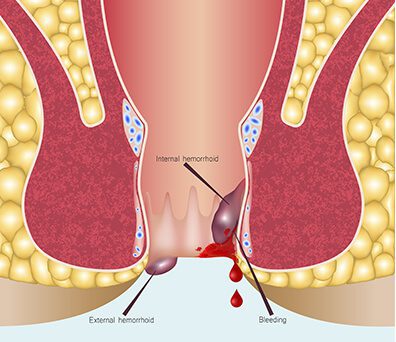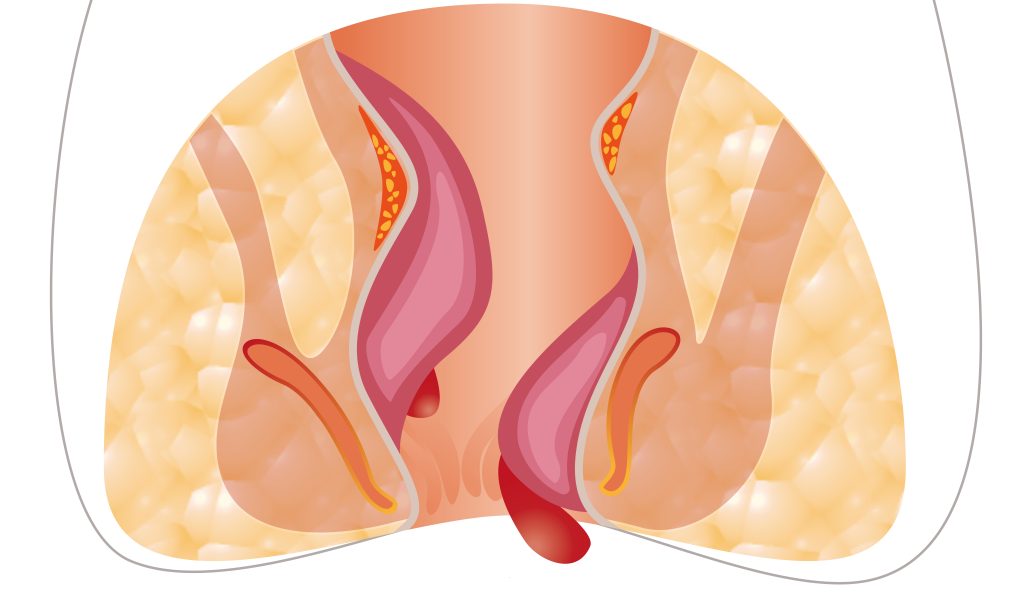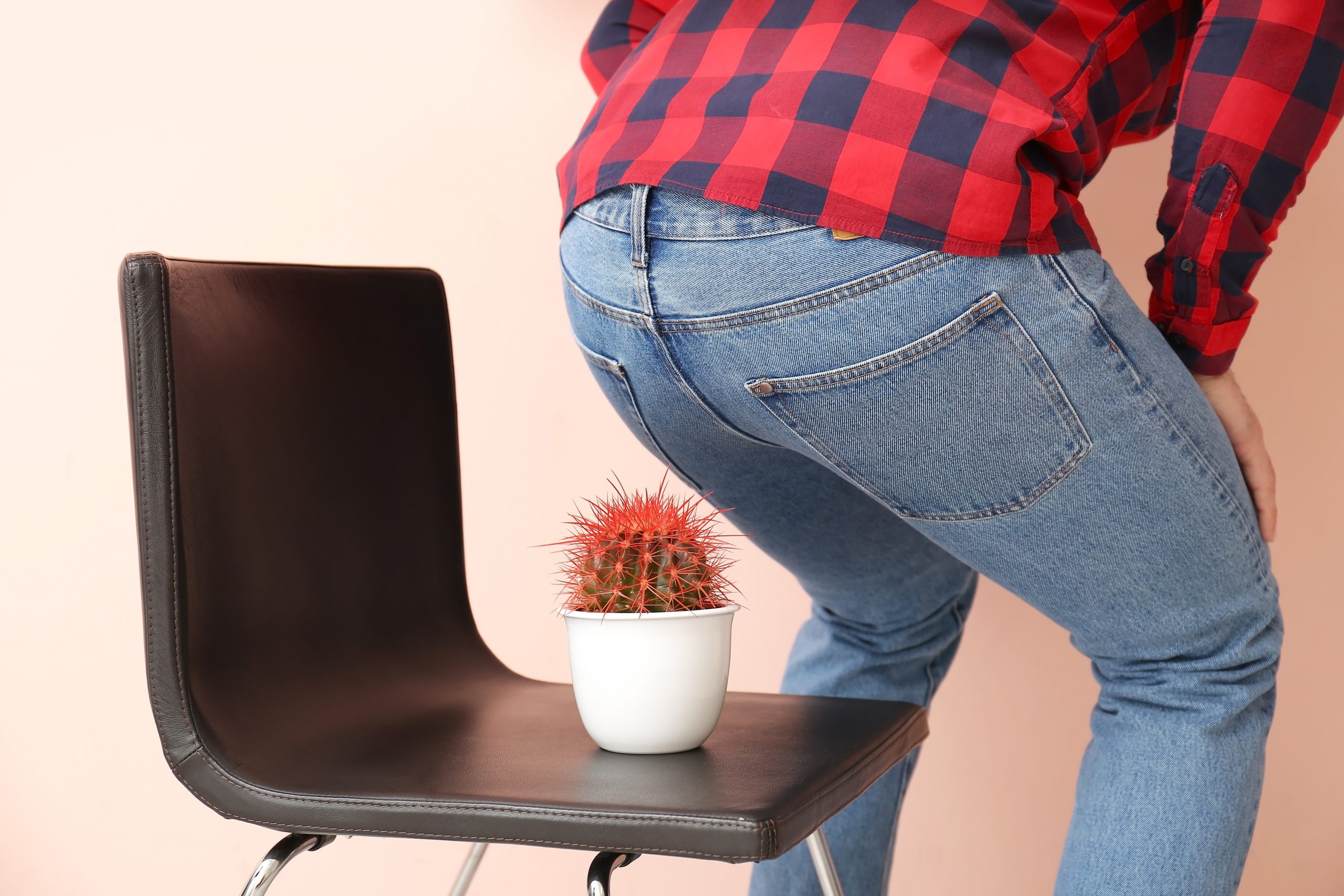At Surgikure, we believe in providing personalized and considerate healthcare solutions for everyone. One of the most common concerns people come to us with is anal fissures—small tears in the lining of the anus that can cause significant discomfort and pain.
In this comprehensive guide, we will be covering everything you need to know about fissure treatment, from initial care and signs of healing to more advanced procedures like surgery, along with tips on precautions and recovery. If you are in Vizag or Vijayawada, don’t hesitate to consult us for expert guidance and treatment.
For Free Consultation : +91 7670968977
What is a Fissure?


An anal fissure is a small tear in the thin, moist tissue that lines the anus. It can happen due to hard or large stools, straining during bowel movements, or even childbirth. While these fissures may be tiny, the pain they cause can be intense. Though they are common and generally not severe, fissures can cause considerable discomfort and affect your quality of life.
Symptoms of a Fissure
You might suspect you have an anal fissure if you experience:
- Sharp pain during and after a bowel movement
- Bright red blood on the toilet paper or in the stool
- Itching or irritation around the anus
- A small, visible tear in the skin around the anus
- A skin tag or lump near the tear
If you notice these symptoms, it’s essential to seek help immediately. At Surgikure, we guide you through the available treatment options to relieve your pain and promote healing.
Fissure Treatment: The various methods
In most of the cases it takes only few weeks to heal once appropriate conservative measures have been instituted. Here’s an overview of the fissure treatment methods available:
- Dietary Changes: A high fiber diet is usually the initial procedure in fissure treatement. If you add fruits, vegetables, and whole grain products in your diet, you would be able to manage constipation and also decrease the likelihood of aggravating the area.Hydration: Another way of avoiding formation of fissures is through enhancing adequate intake of water; one of the causes of fissures is constipation.
- Topical Treatments: Counter irritants to decrease inflammation can be purchased over the counter in the form of hydrocortisone creams or ointments and local anaesthetic as this will help you to manage pain and heal.
- Sitz Baths: Sitting in warm water for 10-15 minutes, 2-3 times a day can help to ease the pain and aid the muscles of the anus to relax to help the injury heal.
- Stool Softeners: These can minimize the tendency of straining during defecation which would really frustrate the occurrence of the fissure.
- Botox Injections: Where appropriate, dose-injections of botulinum toxin into the sphincter muscle are suggested. This will immobilize the muscle and gives the fissure a chance to heal because it minimises the contraction and pain.
How do you know if a fissure is healing?
Signs that your fissure is healing:
- A reduction in pain, especially during bowel movements
- Less bleeding
- Decreased itching or irritation around the anus
- The wound or tear appearing smaller or less pronounced
On average, fissures take about six weeks to heal with proper treatment. If you notice persistent symptoms or worsening pain, it may be time to consider more advanced treatment options, such as surgery.
When is Fissure surgery required?
Some cases may persist to be chronic as opposed to most fissures that can be treated with simple interventions. Surgery may be necessary if:
- It is impossible to cure the ailment nonsurgically within a time frame of 6-8 weeks.
- You still have meeting or activity limitations because of significant pain or discomfort.
- It is found that there is considerable constriction of the circular muscles of the anus thus no possibility of healing.
At Surgikure, if a patient requires surgery, our competent team will attend to you and carry out the surgery. The most frequently used surgical technique is known as lateral internal sphincterotomy (LIS), which involves the incision of a small part of the circular muscle present in the anus; this is done with an aim of arresting muscle crampsor stiff muscles. This process has a high success rate and relatively little time required for the recuperation of a patient’s organs.


The Procedure: What to expect
If surgery is recommended, here’s what you can expect:
- Pre-surgery: Our specialists will do a comprehensive check-up for your medical history, the signs or ailment and the overall state of your body. Anoscopy may be required to take better view of the fissure among other diagnostic tests.
- During Surgery: Generally, the LIS surgery does not last more than 30 minutes. You will be requested to undergo either local or general anaesthesia depending with the case you have. The surgeon will make an incision in the internal anal sphincter in order to relieve tension around the fissure and in order for it to heal.
- Post-surgery care: In some cases, this may prevent one having to avoid physically straining activities for a few days or even weeks and pain medicine is given to one in case of pain. Many patients can resume their daily obligations in a week, while the fissure of the anal canal should be closed in several months.
Precautions for preventing fissures
This is why the phrase, prevention is better than cure rings true at Surgikure as we seek to promote the wellbeing. Here are some tips to avoid developing a fissure or recurrence:
- Stay Hydrated: Staying well hydrated is important so, consume a lot of water.
- Eat Fiber-rich Foods: Take more of fiber in your diet such as fruits, vegetables and whole grains so as to avoid constipation.
- Avoid Straining: Constipation should be avoided because straining can lead to or exacerbate fissures.
- Maintain Proper Hygiene: The skin around the anus should be washed in a delicate manner after defecation to reduce rashes.
In case you are vulnerable to fissures, these practices can be useful if you want to prevent their recurrence in the future.
Why Consult Surgikure for Fissure Treatment?
Surgikure is fully committed to offering patients Quality Healthcare for a wide range of illnesses for instance Anal fissures. They focus on medical as well as surgical solutions, so all treatments plans are individual and tailored to each patient. Whether you are seeking dietary guidance or interested in inquiring about future surgery we are here for your recovery.
For those in Vizag or Vijayawada, our clinics allow you to get the best in fissure treatment right in town with our quality medical centers. Forget about the discomfort—give us a call now and start your journey toward better conditions.
You can visit Surgikure today for professional fissure treatment from us today. We’d like to make you pain free!
Surgikure can guarantee you the best care for fissures as well as other medical conditions through its personalized service and applying best practices. It may be a one-time occurrence or you need a surgical procedure, our approach is to get you fixed and help you live your life as fully as you can.



